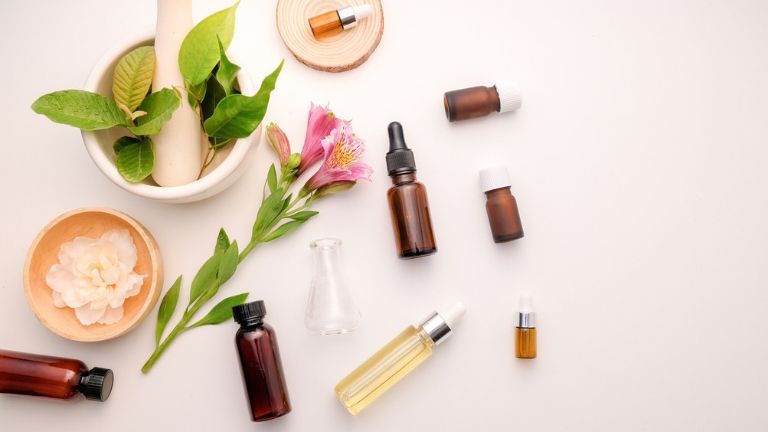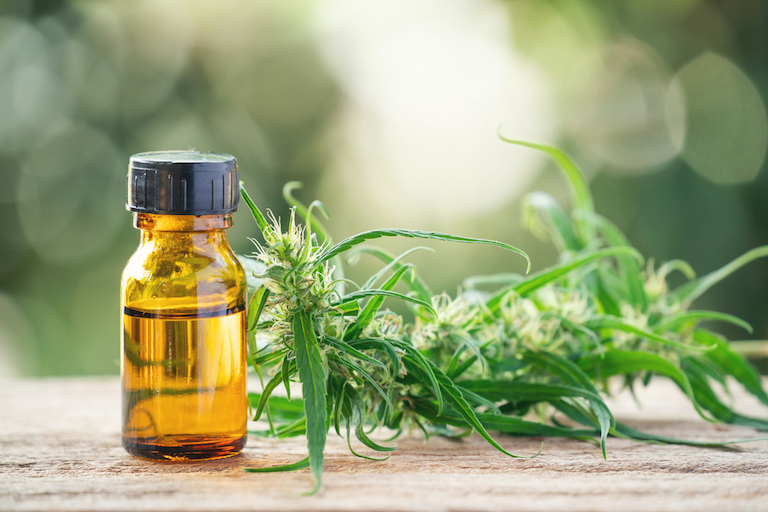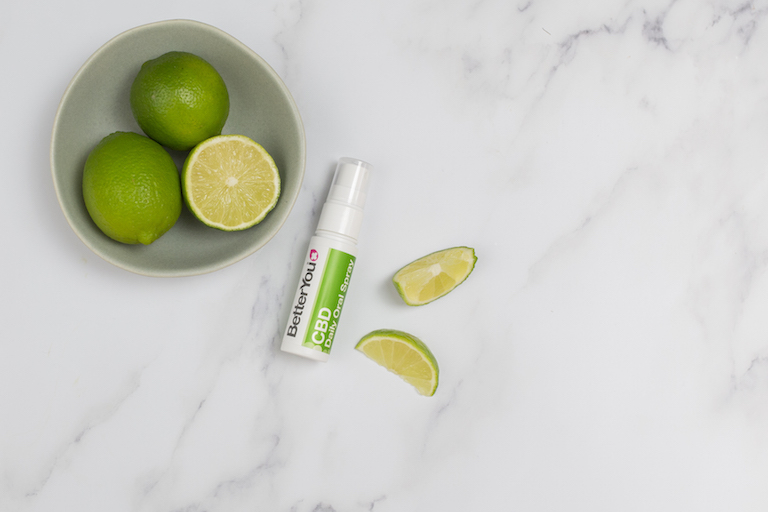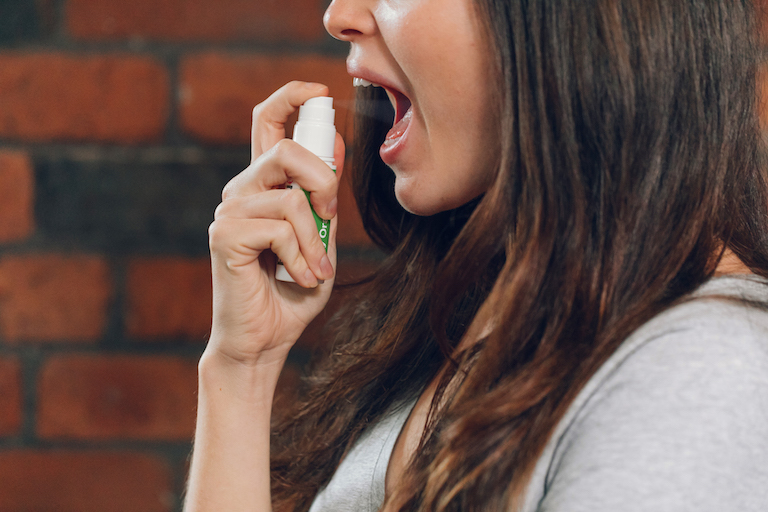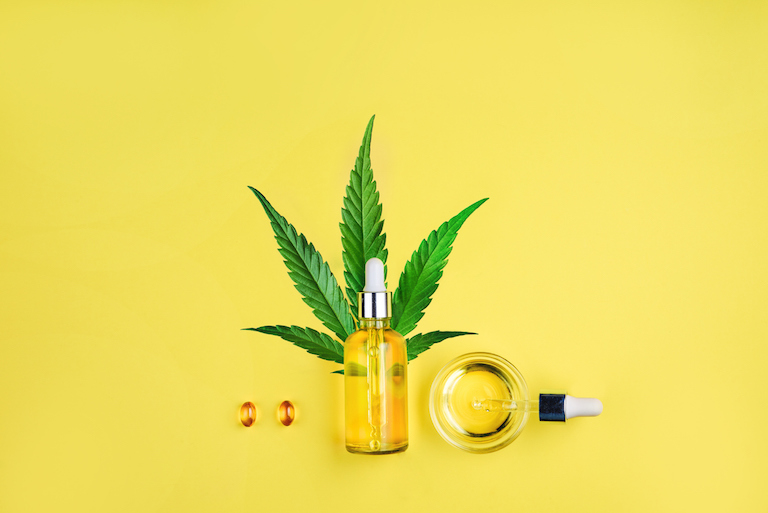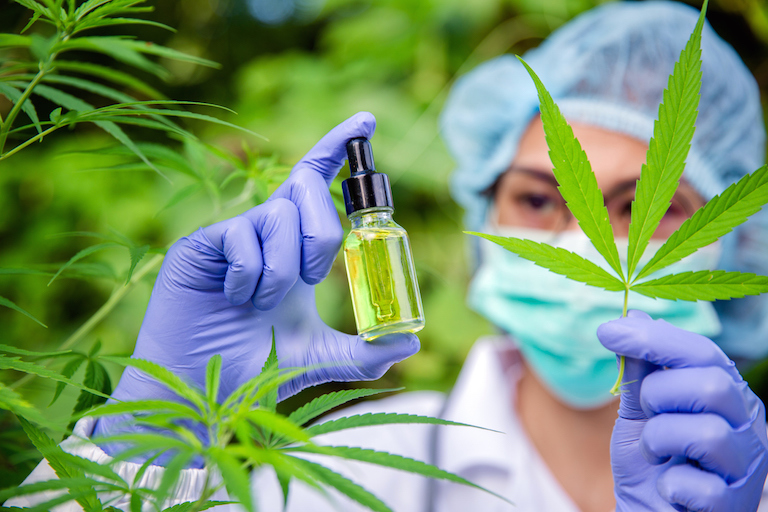Does CBD oil get you high? How do you know you’re not buying something dodgy? What does it work for? Editor Anna Magee looked at the science and put these questions to a product developer from one of the most trusted health brands in the business…
Am I the only one who is really, really confused about CBD?
Does it get you high? Is it addictive? How is it regulated? How is it even made? Is it really any different from smoking weed?
As the editor of Healthista, I’m expected to know these things. But the CBD landscape is changing all the time and it’s hard to know who to trust.
Not long ago, the US government granted $3 million US to the development of CBD pain relief research.
And yet, as we see CBD being added to everything from energy bars to moisturisers to personal lubricant (not joking) how can we know we are not buying something dodgy?
The US government granted $3 million to the development of CBD pain relief research
Indeed, last month CBD products in Alabama were found to be spiked with synthetic marijuana. That’s not something I’m willing to take my chances with and as more and more CBD products cross my desk, I notice a vast range in their quality.
Some look like their labels have been made on a home printer, and they taste like literally ingesting dirt. Others – well, only a few if I am honest – have the backing of companies I already trust.
First, I looked at the research and the safety for CBD.
1. What’s the evidence that it works?
CBD oil, which is short for cannabidiol, has a world of A-list celebrities vouching for its effectiveness, including Jennifer Aniston who takes it for joint pain and Victoria’s Secret model Allessandra Ambrosio who takes it to help her sleep.
Meanwhile, Kim Kardashian threw a CBD-themed baby shower last summer where guests were encouraged to blend their own CBD bath oils.
But celebrity endorsement aside, what kind of research exists?
There are in fact over 2100 published studies relating to CBD on the website of the US National Library of Medicine, which compiles peer-reviewed medical journals and over 900 of them relate to human studies.
Still, some researchers argue that most of the studies on CBD are small-scale and more research is needed to show that it works on larger numbers.
The best evidence I could find were for CBD oil’s potential effectiveness for:
Joint pain
While many clinical studies on CBD oil and joint pain are on animals, the authors of a report on CBD oil and joint pain published in 2017 in the journal Clinical Experimental Rheumatology concluded that ‘…the preclinical and human data that do exist indicate the CBD should be taken seriously as a potential treatment for joint pain.’
Anxiety
The authors of research published in 2011 in the journal Neuropsychopharmacology observed, ‘Pre-treatment with CBD significantly reduced anxiety, cognitive impairment and discomfort in subjects’ speech performance.’
Panic attacks
A 2017 review of the evidence for CBD and panic attacks published in 2017 in Current Neuropharmacology looked at the animal and human research available and concluded that ‘CBD was a promising drug for the treatment of panic disorder.’
Sleep
There’s a lot of anecdotal evidence for CBD’s effectiveness as a sleep aid and it seems, also, some scientific research, says one report from Harvard Medical School. It concluded that, ‘for patients who suffer through the misery of insomnia, CBD may help with both falling asleep and staying asleep’.
2. Is CBD oil safe?
As long as you buy from a reputed supplier who can produce certification on the products’ safety and ingredients – see below on how – and you opt for the hemp-derived variety, as opposed to the marijuana-based option, it should be safe.
A World Health Organisation report on CBD confirmed that ‘CBD is generally well tolerated with a good safety profile.’ Reported adverse effects may be as a result of drug interactions between CBD and patients’ existing medications.’
Controlled human studies have not found any potential for physical dependence, withdrawal or tolerance and it is not associated with abuse potential, the report concluded.
Secondly, to allay my own confusion about what the stuff actually is and how it’s made I spoke to a product developer at BetterYou, Keeley Berry, who is also a nutritional expert.
BetterYou work with academics and universities to research their products and the Healthista team and I swear by their topical magnesium, which really works for helping induce sleep and prevent muscle cramping.
I trust BetterYou as a company to deliver something safe and effective, abide by regulatory guidelines and to know what they’re talking about.
So, when they brought out a new CBD oral spray – the only liquid CBD I can stomach thanks to its natural lime flavour – I decided to use the chance to get my questions answered.
3. Now, what is CBD?
CBD is one of at least 113 known cannabinoids derived from the hemp plant. ‘These plant-based cannabinoids are similar in structure to the body’s own cannabinoid system, called the endocannabinoid system,’ says Berry.
‘The endocannabinoid system in the body is responsible for regulating sleep, appetite, anxiety and pain – CBD binds to part of the body’s endocannabinoid receptors to boost the body’s production of its own cannabinoids’.
4. Can you get high from CBD?
The specific cannabinoid substance found in marijuana that makes you high is called THC, and that is the psychoactive part of the drug.
‘The industrial hemp production that is the basis for CBD oil’s manufacture is grown to have lower THC levels and higher CBD yields,’says Berry.
‘In this country, THC is highly–regulated to ensure there is no more than 1mg of THC per bottle of product and therefore will not induce psychoactive effects,’ says Berry.
This underlines the importance of buying from a reputable company, that can produce certification on exactly what is in the product, including THC levels (see below).
5. Is CBD addictive?
‘Due to extremely low levels of THC, there’s no reason why CBD oil should be addictive when used responsibly,’ says Berry.
6. What makes taking CBD oil different from smoking cannabis?
Industrial hemp used to make CBD products is different from marijuana that is used to produce cannabis.
Marijuana growth and use results in products that are illegal in the UK due to its high THC content, making it addictive.
‘Whilst there are a multitude of cannabinoids that smoking marijuana provides, smoking cannabis also has its own health risks and is illegal in the UK,’ says Berry.
‘Not only that, the high levels of THC that come from smoking marijuana can induce psychoactive effects that affect mood and behaviour, and trigger dependency long–term’.
7. Can you overdose on CBD?
‘There has been a lot of research into the efficacy and safety of CBD, and if used responsibly, is safe for consumption and should not result in toxicity,’ says Berry.
‘It’s always best to stick to the manufacturer’s instructions on the product you’ve purchased and consult a GP and discontinue use if you’re noticing any adverse effects’.
Adverse effects can include; dry mouth, low blood pressure and drowsiness.
8. Are CBD oil and hemp seed oil are the same thing?
There’s hemp seed oil at supermarkets and health food stores, and then there are CBD oil supplements that come in dropper, capsule and cheek spray form. There’s a BIG difference between the two.
‘Hemp seed oil is made from the seeds of the hemp plant that are rich in omega 3 and 6 fatty acids – they tend to be used in cooking and cosmetics,’ Berry points out.
Hemp seeds are a food, but when you start growing the plant and extracting CBD oil from its leaves and stalks, then you’re talking about a CBD oil supplement and the manufacture of these is strictly regulated in the UK (see below).
CBD oil can also be known as ‘hemp extract’ and is derived from the industrial hemp process that results in high CBD and lower THC containing crops – this is what you find in CBD oil supplements.
9. How and where is CBD grown and harvested?
Most CBD products that are available in the UK come from industrial hemp grown within the European Union, adhering to strict legal guidelines.
There are three ways CBD oil can be extracted from the hemp plant. Firstly, and most commonly, ethanol is used to extract the CBD from hemp. Alternatively, carbon dioxide is used to heat up the hemp and the resulting oil is then extracted – this is called ‘supercritical Co2 extraction’.
‘At BetterYou we are currently investigating the method of extracting the CBD oil using water, but it may be a while before this is commercially available’ adds Berry.
Not all CBD products are the same quality so it’s important to look out for trusted brands who can provide analytical results for their products.
Any company who makes a CBD product should be able to supply a consumer with a certificate confirming its safety, the amount of THC it contains and any residual solvents leftover from the manufacturing process.
‘Given that CBD oil production is a new area, you are well within your rights to ask to see this,’ Berry asserts.
10. What dosage do I need and how long does it take to feel the benefit?
The effects of CBD oil will vary from person to person.
‘With an oral spray or dropper, the effects are usually noticed within 30 minutes to an hour and last up to six hours depending on the dose administered,’ says Berry. ‘It’s important to start with a lower dose and build up to a comfortable level that is right for each individual.’
‘We know that delivery via an oral spray can be much more effective as it delivers nutrients directly into the bloodstream, bypassing the digestive system where absorption can be lost, or may vary from person to person’ concludes Berry.
Talk to your doctor before taking CBD oil, especially if you’re on other medications.
Relevant Healthista content:
3 healthy recipes using CBD oil – yes CBD oil
4 CBD benefits proven by science
7 best raw vegan chocolate brands we can’t get enough of
7 surprising hacks for a good night’s sleep
Other Healthista content you might like:
8 weight loss tips proven by science
Like this article? Sign up to our newsletter to get more articles like this delivered straight to your inbox.



